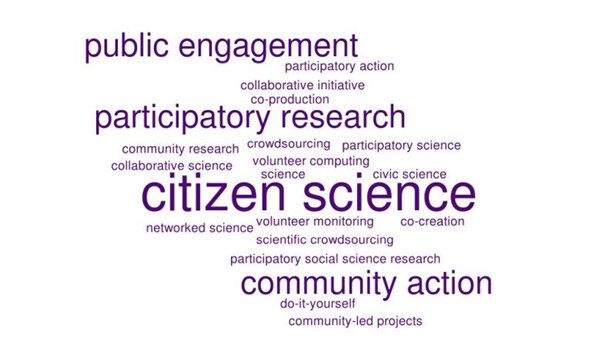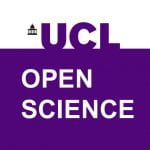As we continue celebrating International Open Access Week, it’s inspiring to see how open access is shaping research and collaboration across UCL! Earlier this week, we explored the balance between collaboration and commercialisation, and highlighted the important work of Citizen Science initiatives.
Midway through the week, Dhara Snowden, Textbook Programme Manager at UCL Press, shares her insights below on the growing significance of open access textbooks and their role in the broader landscape of open access publishing.

UCL Press is the UK’s first, and largest, fully open access university press. We have been publishing books and journals for almost ten years, covering a wide range of subjects and formats. In 2021, the press launched a new programme focusing on open access (OA) textbooks. I joined at that time, and over the past three years, I’ve been responsible for managing our progress in this area. As part of this year’s International Open Access Week, I wanted to share some of our thinking and planning around this activity and offer some musings about OA textbook publishing in general and what the future holds.
What are Open Access Textbooks?
Firstly, it’s useful to clarify what we mean by “textbooks.” Through conversations with academics across faculties, I’ve realised this term can mean different things depending on the context and level of study. In the broadest sense, a textbook is a resource that supports the delivery of a course or module. Textbooks can provide a wide-view survey of a field or subject, to be “adopted” as the main guide for study, or they can be part of a reading list that includes chapters from various sources, like journal articles.
Although textbooks were traditionally published in print, there has been increasing demand for digital versions of commercial textbooks, which can be purchased by individuals and licenced to institutions for use for multiple users.
Open access publishing, meanwhile, involves making scholarly content freely available online, removing subscription or purchase barriers. In the context of textbooks, this means students and educators can access high-quality educational resources without significant costs. OA textbooks are typically published under a Creative Commons (CC) licence, which allows for redistribution, adaptation, and modification, promoting a collaborative and inclusive educational environment.
The creation and uptake of OA textbooks has seen a sharp increase in recent years, particularly in the US and UK, with non-profit-funded publishers like OpenStax, collaboratively funded projects like CORE Econ, and platforms like Pressbooks. The Open Textbook Library, supported by Open Education Network, currently indexes 1,542 published open textbooks.
Why do we create them?
The UCL Press textbook programme was set up in direct response to issues around pricing for institutional access to essential e-textbooks, which were exacerbated during the Covid-19 pandemic. The current ecosystem presents an unstable and unsustainable financial model for institutional libraries, as well documented by the eBooks SOS campaign, which calls attention to the lack of regulation in pricing by commercial publishers.
An article published by Insights in 2022, ‘Perspectives on e-books and digital textbooks and the way ahead’, claims that ‘combined spending on book across nationally negotiated library purchasing frameworks increased from £55M in 2019/20 to £73M in 202/21, with e-textbook provision increasing by 281% to £25.1M during that time’.
In addition to concerns about affordability and sustained access, the Insights article outlines that post-pandemic, “shifts in teaching practice are accelerating demand for features that enhance blended learning”, with more flexibility and adaptability in resources being required, which isn’t being delivered by traditional academic publishing.
UCL Press’s aims to disrupt the current academic publishing ecosystem, offering authors and readers an alternative to the commercial model. This connects the theme for OA Week 2024, which calls for community over commercialisation. Bringing publishing back to the hands of academy, we can provide sustainable and high-quality textbooks to facilitate hybrid teaching and remove barriers to access for our content thereby reaching the widest possible audience and increasing chances to impact in scholarly communities.
How do we create them?
The UCL Press textbook programme commissions and publishes textbooks for undergraduate and postgraduate students across a wide range of subjects and topics. Every new proposal (and final manuscript) undergoes a rigorous peer-review process to ensure high-quality and relevant content.
Our approach is to collaborate with lecturers to create resources that provide high-quality guidance for students. Taking a personal and flexible approach to each project, we avoid rigid templates or a one-size-fits-all mentality, tailoring our textbooks to the needs of students and subject matter.


To date, we’ve published two textbooks. The first, An Introduction to Waste Management and Circular Economy, came out in December 2023. This textbook supports a module taught at UCL but also has global relevance for courses in environmental engineering, resource efficiency, bioenergy, and waste-to-energy technologies.
More recently, we published Methods and Methodologies in Heritage Studies, an edited collection exploring the disciplinary debates, intellectual legacies, and practical innovations that shape contemporary understandings of heritage value.

Together, these two titles have been downloaded over 12,000 times in 152 countries and territories. Our forthcoming titles include, A Guide to Performing Systematic Reviews of Health and Disease and Fundamentals of Dark Matter, both due to publish early next year.
What are the benefits of writing or using OA textbooks? Where’s the value?
There are many benefits to writing and using OA textbooks and the European Network of Open Education Librarians have created a toolkit to encourage use of OA materials and Open Educational Resources (OER). Some key points are listed below.
- Reaching a Global Audience: downloads and views from readers across the globe, particularly the Global South.
- Cost-Effectiveness: One of the most significant advantages of OA textbooks is their cost-saving potential for both library and student. OA resources can alleviate this burden, allow to redistribution of saved funds and make education more accessible for all.
- Adaptability: open licences enable reuse, modification and adaptation, enabling educators to make the content work best for teaching.
- Showcase Teaching Excellence: OA textbooks can help platform new approaches or area of study, and celebrate examples of teaching excellence.
- Encourage lifelong learning: Provide students with resources they can use and reference after their studies and into their careers.
- Accessibility and Inclusivity: Open access textbooks are available to anyone with an internet connection, supporting diverse learners, including those in remote or under-resourced areas, and those outside academic institutions(e. professionals and policy makers)
- Up-to-Date Content: Traditional textbooks can quickly become outdated. OA textbooks can be updated and revised more readily, ensuring that students have access to the most current information.
- Enhanced Collaboration: Open resources encourage collaboration among educators, fostering a community of shared knowledge and innovation.
To measure impact, we use both qualitative and quantitative measures. Our Statistics dashboard shows the readership and reach of our books, including a map of access. In addition, we are collecting testimonials and feedback from academics and students and engaging with the societal impact of our books (as discussed in a recent article in The Scholarly Kitchen). We interrogate our user analytics to understand which communities are interacting with our content and how they are using it in their own work.
Value in this context is calculated not only in terms of cost-saving on commercial provision, but also in the added value student experience. This includes showcasing teaching excellence to encourage enrolment in a particular course or providing a teaching and learning resources for a module that are underrepresented in commercial provision (i.e. those with smaller cohorts/interdisciplinary topics/less mainstream perspectives).
What does the future hold?
The future of open access textbook publishing in the UK looks promising, with increasing institutional support and growing awareness among educators. As the demand for affordable and accessible educational resources continues to rise, the potential for OA textbooks to reshape higher education is significant.
Open access textbook publishing represents a vital shift in the academic landscape, providing a sustainable, equitable, and collaborative approach to education. As more institutions and publishers embrace this model, we hope to create a future where quality educational resources are accessible to all, empowering students and educators alike.
Significant sea change in the status quo requires a long-term outlook, and significant investment and commitment. If educators, students, and policymakers continue to discover and advocate for the adoption of open access resources within institutions, there is potential to foster an educational environment that fully supports and values accessibility, collaboration, and innovation.
UCL Press will continue to develop its programme of OA textbooks and to keep up to date with our publications, please do sign up to our mailing list or take a look at our website.
Filed under Advocacy, Case Study, Guest post, Open Access Week 2024, Open Education, Open Science, UCL Press, Updates
Tags: Creative Commons, etextbooks, International Open Access Week, Open Access Week, Open Access Week blog series, Open Educational Resources, open publishing, Textbooks programme, UCL Press
No Comments »

 Close
Close



 This year, the
This year, the  Over the past 12 months, the Open Access Team has facilitated the Gold open access publication of over 3,500 papers across
Over the past 12 months, the Open Access Team has facilitated the Gold open access publication of over 3,500 papers across 


 In the world of Research Data Management at UCL, the past year has been significant as the
In the world of Research Data Management at UCL, the past year has been significant as the 

















